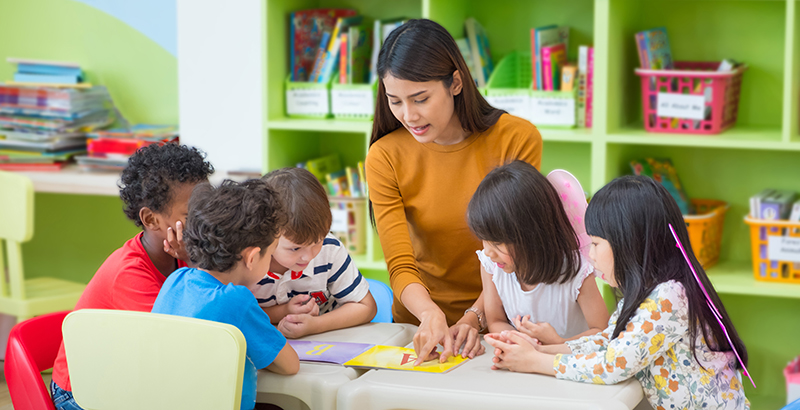The teacher plays an important role in school. He is not simply to impart knowledge but also mould the habits, traits and character of pupils. He is to achieve educational objectives through the curriculum of the school.
In order to discharge his duties effectively he must possess certain qualities and qualifications which may be described as under:
1. General Academic Background:
The teacher is required to answer questions which require fair command of subject. He should have sufficient knowledge so far as the pupils are concerned. That is why minimum qualifications are laid down for the appointment of teachers in schools.In addition to knowledge of his subject, he should have sufficient general knowledge. For this he should have literary tastes.
2. Professional Efficiency:
Knowledge of the subject matter is not sufficient to be a good teacher. A first rate scholar may be a poor teacher. He must have some pre-service training, so that he is conversant with things and outcomes of teaching. While in service, he should attend short-term refresher courses, workshops, seminars and educational conferences so that he goes on adding to this professional efficiency. The teacher should have a sense of dedication to the teaching profession. He should be dedicated to teaching and teach enthusiastically. Teacher’s enthusiasm, professional insight and sense of dedication are his valuable assets.
3. Personality Traits:
Teacher’s personality traits have deep impact on the pupils.
(1) Love for children:
The teacher must love his pupils. He must understand them individually and try to help them in overcoming their difficulties. His attitude should be sympathetic and friendly.
(2) A man of character:
The teacher should have high moral character. He should have sound principle of life as his ideas and conduct will affect the children profoundly.
(3) Emotionally Stable:
The teacher must be emotionally stable. He must be free from complexes, worries and frustration. An emotionally unstable teacher cannot do justice to his work.
(4) Good expression:
The teacher must be able to express his thoughts clearly His oral and written expression must be good. He has to write reports and so many other things. His speech, pronunciation and voice must also be impressive.
(5) Sense of Humour:
In the school, the teacher should have smiling face and a cheerful look while teaching. His sense of humour will help him to overcome very serious situations, which can be sometimes laughed away.
(6) Social Traits:
The teacher should be sociable in nature. He must maintain good relations with his colleagues, pupils and their parents and general public. He must be mixing with people. Only then he will be able to develop social virtues in students.
(7) Leadership quality:
The teacher should be able to provide effective leadership to the children who are immature and need guidance in matters of study, activities and other courses etc.
Role of the Teacher:
Teaching is a complicated job. It is not mere communication of knowledge to the student. Even knowledge cannot be hand over to students like currency. The teacher has to attend to a number of the factors while working in the school.
1. Role in Teaching:
Teaching is the first and foremost duty of the teacher. The teacher should prepare his lessons regularly. Teacher must motivate the pupils and use methods and techniques of teaching suitable for particular group of students. must always try to improve his teaching skills. He should give regular home work and check it regularly.
2. Role in Planning:
In order to be a successful teacher, he must plan his work well. At the first place he should plan his teaching work. He decide how much work is to be done in a particular month and in a particular week. Daily teaching work must also be planned. He should plan use of teaching aids in advance. Activities of the pupils are also to be planned by him.
3. Role in Organizing:
The teacher has to organize a number of activities in the school. Guider has to organize the school plant. He has to make seating arrangements, distribute equipment’s and keep it neat and clean. Besides library work, laboratory work, sports etc. need proper organisation.
4. Role in Supervising:
The teacher has to supervise a number of tasks and activities. Teacher is required to supervise attendance of pupils, their daily work, home work, their work habits and behaviour. He has to maintain order and discipline in the school. He may have to supervise pupils in the hostel.
5. Role in Guiding:
The teacher not only supervises pupils and their work but also gives them tasks relating to selection of courses, home work, and other study activities. Pupils study habits and work habits have to be guided properly. He must pay attention to all children particularly to the delinquent, abnormal and mal-adjusted children.
6. Role in Evaluating:
Work of the pupils and their participation should be evaluated by the teacher from time to time. It is evaluation which will throw light on teachers’ work and pupil’s achievement. Evaluation will point out weakness in teaching and learning process and the he can adopt suitable remedial measures. He has to conduct house tests and report the progress of pupils to parents and the headmaster. Policies of promotion have to be chalked out in the light of evaluation.
Responsibilities of a Teacher:
Teaching is a tri-polar process which has three indispensable elements or constituents-the teacher or educator, the taught or educed and the curriculum. Out of these three, he plays the most significant role in making the teaching process a grand success. Because the teacher is the real practitioner of the teaching learning process.

